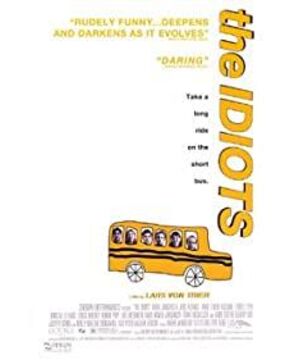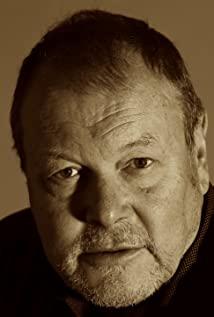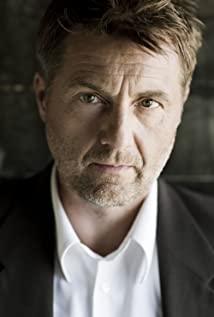This is a group of people who dress up as disabled people and take pleasure in making fun of others. It seemed to others that it was the most appropriate way to describe them, or it might be more appropriate to say it - a bunch of lunatics pretending to be lunatics. This message is conveyed to the audience from the very beginning of the film. Their pranks not only deceived Karen, but also deceived most of the audience. It is estimated that some people will sigh while stunned and sigh that this is not an inspirational and warm film about caring for the disabled. At this time, the audience next to him may give him a blank look and say, You don't even look at who the director is. Indeed, at the beginning of the film, Russ showed his creative talent in the script. Karen showed a slightly neurotic behavior (that very nervous and subtle look just right) when sitting alone in the restaurant ordering food, and then appeared After they brought back Karen who was eating in the restaurant, the audience would probably think that the next Karen would definitely have a dramatic reaction with them; but the director did not do so, he Throwing most of the shots on that group of young people - until the end. So Karen's hidden line is very subtle, and the audience, although they don't know what will happen to Karen, can be sure what will happen to her. The effect of this psychological suggestion has been hidden deep in the consciousness, suppressing the emotions of the audience, until the final explosion and accompanying Karen's return. The line that runs through the whole film alone is already very colorful.
The film also creates a very real atmosphere, which is mostly caused by shaky and real footage, except for the actors' performances. However, there is a shot inside that captures all the photographers. This is the director's intentional editing or negligence. It is unknown. It may be a manifestation of the director's anti-movie intention (this can also be seen in "Dog Town"), and there are also Probably trying to create the same kind of realism that the characters interviewed in the film are trying to get. But don't do the thankless thing of over-interpreting it, so don't talk about it.
------------------------------ After
watching this movie, the first thing that came to my mind was Pasolini's Sodom , two complete extremes, yet so similar. One is the real oppression of human nature, and the other is the illusory oppression of oneself. Even some of the elements inside are so similar, nudity, group sex, breaking taboos, etc. Flowers of evil bloomed everywhere. Of course this is relative, relative to the middle class criticized by the film. The character's anger at the hypocrisy of the middle class is similar to Pasolini's irony. I don't know if it is appropriate to attribute the behavior of the characters in this film to "the unbearable lightness of life". It seems that the phenomenon in northern Europe, which is highly developed in society, is indeed understandable. In fact, their various manifestations are more from inner repression - from social pressure, which is different from what we call "lightness". However, if the characters in Kundera's writings are in a state of war, the feeling of floating insecurity floating in the air, if they can be viewed under a microscope, all of them are the fruits of repression in their hearts. But there is still a difference between the two. As mentioned above, the inner depression of the characters in this film comes from the society, but the society does not directly act on them, but the result of a double effect. The society affects the heart, and the heart affects people of the subconscious. However, this is completely different from "persecuted delusional disorder".
I don't intend to write this text as symptom analysis or the like. There are indeed some obvious manifestations of the male protagonist's "exhibitionist" that are hard to ignore. The most cynical, he hides all his resentment against society, and he wants to show the real him for those hypocritical middle-class people, the more they dare not, the more excited he is. The pleasure derived from it is similar to the pleasure of revenge and self-gratification. I've always thought of "exhibitionist" and "persecuted paranoia" as twin brothers, and it was even stronger when he shouted "Nazis" to passersby, who took off their coverings, In order to express their yearning for complete freedom, they cannot tolerate any oppression. Even normal "hypocrisy" in the eyes of ordinary people, that is, the eyes of the middle class, will be considered a kind of persecution.
Except for the end of the film, the most touching part of the film is the couple's first kiss. I can claim that it was real and complete love, how could such a lovely flower bloom without the offer of that group sex. For the first time, two young people who were almost completely autistic in their hearts opened their hearts to each other. Although the last romance ended in an irreversible tragedy, the flowers that once bloomed were beautiful enough. Why do you say that this relationship is destined to be a tragedy? The girl's weakness determines the final outcome, although the boy finally took a step he dared not even think about, when he rushed to the girl's father's car to keep the girl, his Indeed, it has become another person.
The finishing touch -- Karen's return -- saves the group. Karen's return home was a brave attempt, a loud cry of incomprehension, a complete rejection of all hypocrisy. With a slap in the face from her husband, it means it's over, but it's all over again, and it's all about human nature as completely water-soluble, and Karen's return keeps their little utopian family alive. Going down, this is probably the director's good sustenance.
View more about The Idiots reviews











